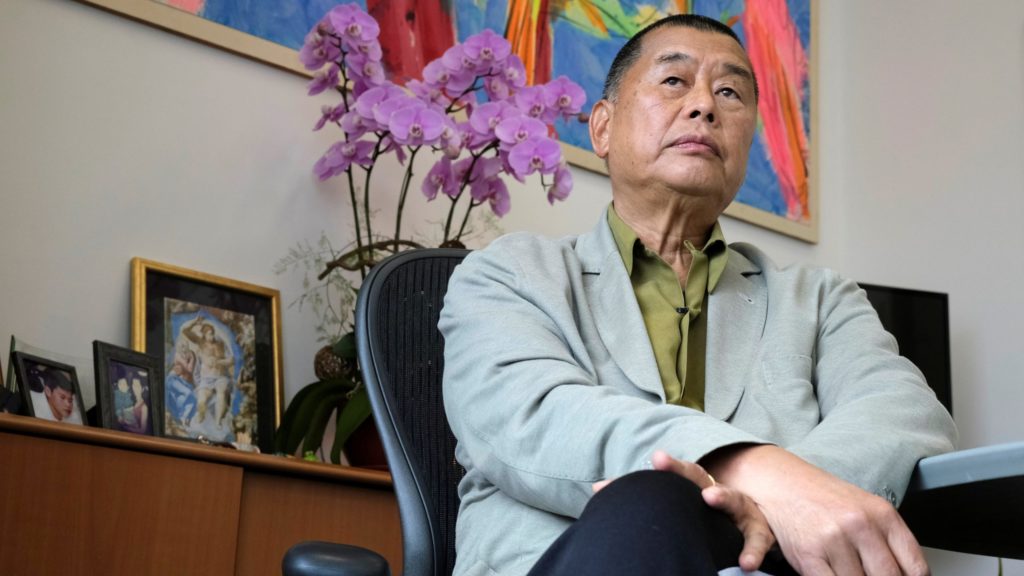The United Nations is warning that evidence in the trial of prominent Hong Kong Catholic, philanthropist and media mogul Jimmy Lai may have been obtained by torturing a witness in China.
The U.N. Special Rapporteur on torture, Alice Jill Edwards, called on China's government to clarify the allegation of torture and launch an investigation. "The absolute prohibition on relying on evidence obtained through torture or other ill-treatment in a trial is a fundamental safeguard," she said Jan. 31.
"I am deeply concerned that evidence that is expected to be presented against Jimmy Lai imminently, may have been obtained as a result of torture or other unlawful treatment," said Edwards. "An investigation into these allegations must be conducted immediately, before any evidence is admitted into these present proceedings."
The use of torture and other coercive techniques to force confessions is well documented in China, the Australian lawyer said. She reminded China that it had ratified the U.N. Convention against Torture. The international legal team of the imprisoned democracy activist, Lai had lodged an urgent appeal with Edwards at the beginning of January against one of the prosecution's most important witnesses.
Lai, 76, is the founder of the Apple Daily newspaper, which was shut down in 2021, and has been a campaigner for freedom of the press and freedom of expression in the Chinese Special Administrative Region of Hong Kong for decades. He was arrested in August 2020 and charged with sedition and collusion with foreign powers under the National Security Law.
If convicted, Lai faces life imprisonment. In January, several U.N. experts called on the authorities in Hong Kong to drop all charges against Lai and release him immediately.
His trial -- which is expected to continue for months -- is seen as a test of Hong Kong's autonomy under a controversial national security law imposed by China in June 2020 to crush Hong Kong's pro-democracy movement.
Lai has donated millions of dollars to Catholic causes and has been the biggest financial backer of Cardinal Joseph Zen Ze-kiun, retired archbishop of Hong Kong, who baptized him in 1997.
On Jan. 2, Lai pleaded not guilty to endangering national security in a trial that democracy advocates around the world said includes bogus charges.
The prosecution witness U.N. torture rapporteur mentioned is one of the 12 Hong Kong democracy activists arrested by the Chinese Coast Guard in August 2020 while attempting to flee to Taiwan by speedboat. The man was held for seven months in a prison in Shenzhen in southern China for illegally crossing the border. In March 2021, he was returned to Hong Kong and charged with conspiracy with foreign powers. In August 2021, he pleaded guilty and named Lai as one of his co-conspirators.
Lu Siwei, lawyer for the 12 Hong Kong democracy activists, was returned to China from Laos against his will in 2023 and imprisoned. "He is at great risk of torture and other ill-treatment," warned Amnesty International in October.
U.N. Special Rapporteurs are part of what is known as the Special Procedures of the Human Rights Council. Special Procedures, the largest body of independent experts in the U.N. Human Rights system, is the general name of the council's independent fact-finding and monitoring mechanisms that address either specific country situations or thematic issues in all parts of the world.
Special Procedures experts work on a voluntary basis -- they are not U.N. staff and do not receive a salary for their work. They are independent of any government or organization and serve in their individual capacity.

